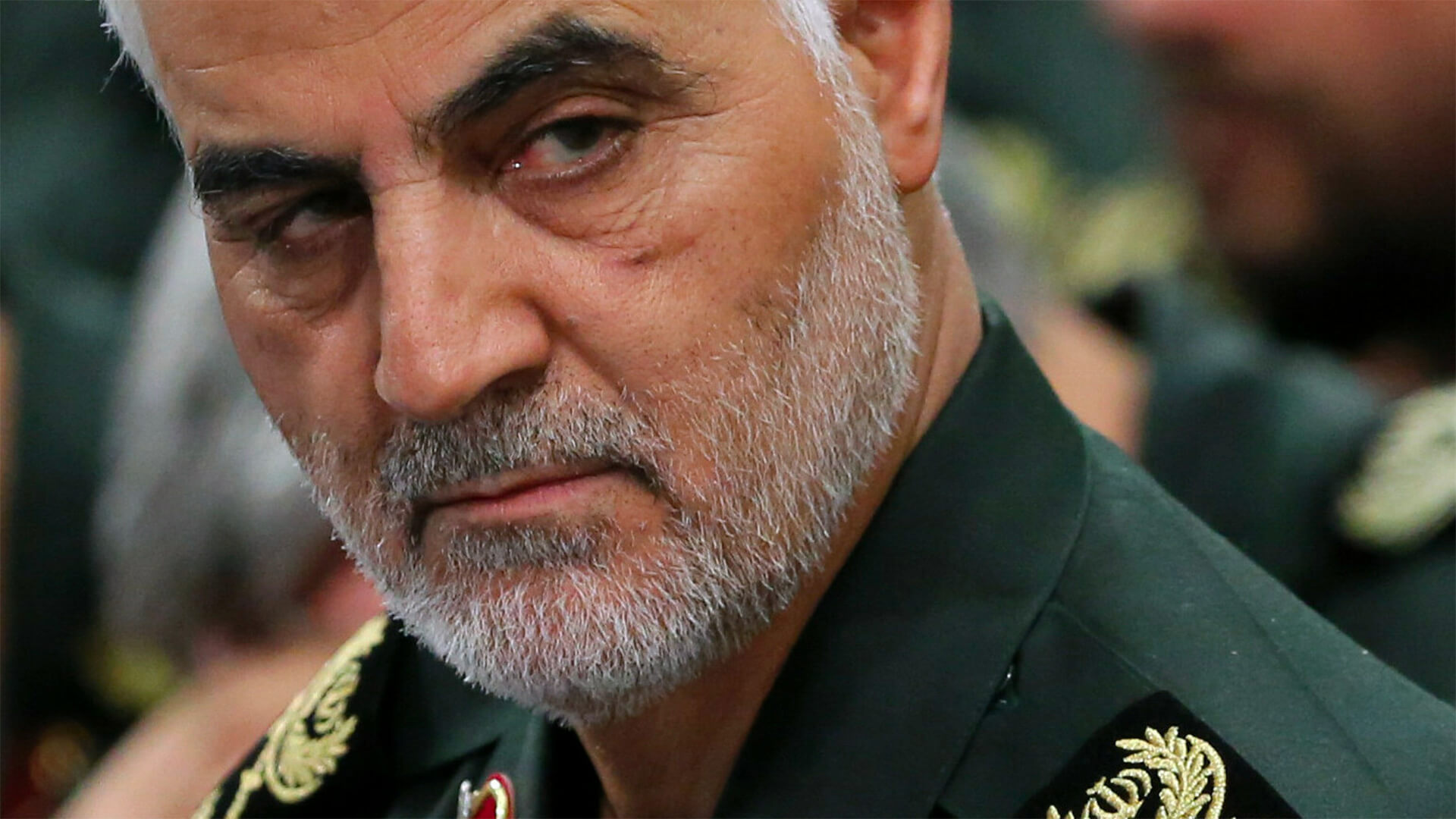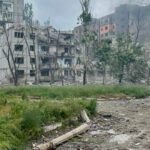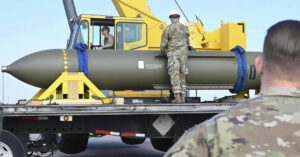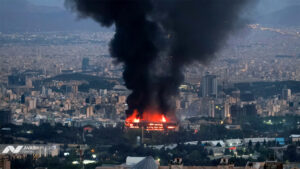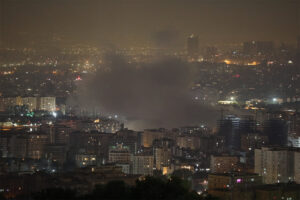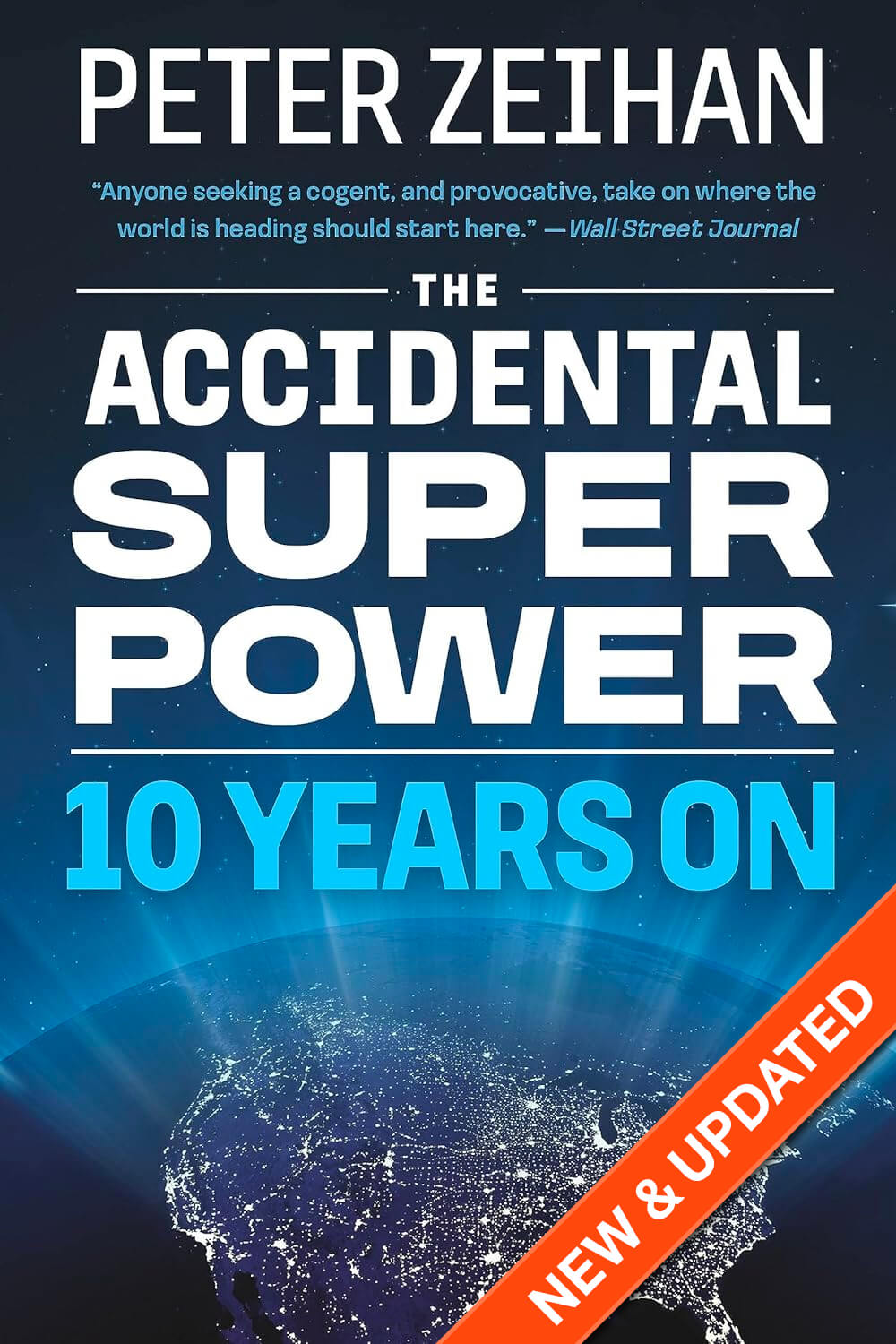
The Accidental Superpower: Ten Years On
With a new “10 years later” epilogue for every chapter, comes an eye-opening assessment of American power and deglobalization in the bestselling tradition of The World is Flat and The Next 100 Years.
There’s been a bombing in Iran that targeted the gathering for the four-year anniversary of Qasem Soleimani’s death. The attack resulted in at least 100 deaths and another 100+ injuries.
Given the nature of the attack, I doubt there is any US or Israeli involvement; however, the more likely culprits are one of the local ethnic groups in the region. Rather than focusing on who carried out this specific attack, it’s a reminder of how vulnerable Iran is.
Iran has a highly complex ethnic composition, and individuals like Soleimani played a critical role in ‘putting out the little fires’ as they popped up throughout the country. Despite Iran’s broader importance and influence in the region, internal problems will continue to plague the country.
Here at Zeihan On Geopolitics we select a single charity to sponsor. We have two criteria:
First, we look across the world and use our skill sets to identify where the needs are most acute. Second, we look for an institution with preexisting networks for both materials gathering and aid distribution. That way we know every cent of our donation is not simply going directly to where help is needed most, but our donations serve as a force multiplier for a system already in existence. Then we give what we can.
Today, our chosen charity is a group called Medshare, which provides emergency medical services to communities in need, with a very heavy emphasis on locations facing acute crises. Medshare operates right in the thick of it. Until future notice, every cent we earn from every book we sell in every format through every retailer is going to Medshare’s Ukraine fund.
And then there’s you.
Our newsletters and videologues are not only free, they will always be free. We also will never share your contact information with anyone. All we ask is that if you find one of our releases in any way useful, that you make a donation to Medshare. Over one third of Ukraine’s pre-war population has either been forced from their homes, kidnapped and shipped to Russia, or is trying to survive in occupied lands. This is our way to help who we can. Please, join us.
TranscripT
Hey everybody. Peter Zeihan here coming to you from Colorado. It is Wednesday, the 3rd of January. The news today is that there’s been a terror attack in Iran, specifically targeting a group of people who was commemorating the four year anniversary of the death of a guy by the name of Qassem Suleimani. Now, for those of you who don’t follow Iranian internal politics like it’s a soap opera.
Suleimani was a military commander, paramilitary commander that the Iranians would dispatch around the region for the last 20 years to basically not so much stir up trouble, but find sectarian groups that were unhappy with how things were going in their neighborhood and arm them, frightened with intelligence and guidance and maybe even a few irregular troops from the IRGC.
That’s the Iranian Revolutionary Guards in order to stir up trouble and foment revolutions. He was very, very successful throughout the entirety of the war on terror, because basically what the United States did is it went into the Middle East and knocked off and tried to prop up certain governments that were not necessarily popular. And so there was always some sort of disgruntled group who was willing to work with the Iranians.
And so Suleimani kind of became a celebrated personality, kind of a cross between an American general who’d be in charge of special forces and Norman Schwarzkopf. So he was very, very, very popular in Iran and very, very, very unpopular everywhere else. And is conservatively responsible personally for the death of hundreds of people. And in terms of his operations, tens of thousands of people.
So not a nice guy unless you happen to be opposed to whatever the current order in your backyard happens to be. Anyway, someone set off a couple of bombs in the vicinity of these gatherings and killed at least 100 people with at least another 100 injured. I’m sure as information becomes more and more available in the days to come, it will turn out to be a lot worse than it sounds.
Let’s start with the the obvious suspects are probably not very likely and then talk about some of the underlying stuff. Everyone’s, of course, in Iran is pointing their fingers at the Israelis and the United States. If the United States is going to bomb someone, you’re going to know it because we’re going to use either a drone or an air explosive, which is going to kill a lot more people than the.
So definitely wasn’t the United States. As for the Israelis, they have demonstrated assassination capability that’s pretty robust. And to be perfectly blunt, they’re not going to target a crowd unless there is someone in it who is really important. And for all intents and purposes, it looks like that was not the case here. This is just a bunch of locals who happen to like somebody who is from their hometown.
It was in the town of Kerman specifically. Other more likely possibilities you’ve got the below cheese, which are an ethnic group in eastern Iran who have never been happy with Persian rule of their territories. You’ve got the Arabs in South western Iran who are probably the most put upon minority in Iran. And then you’ve got the Azeris. I think either submission is in the north who make up about a quarter of the population who from time to time get restive.
All of these are legitimate suspects. I’d say the blotches are probably the highest of that threat. But rather than pointing fingers and who done it, I think it’s more useful to talk about how this is just part of what Iran looks like. And it kind of belies not so much that Iran has feet of clay, but it has a vulnerability that most people don’t appreciate.
Now, the Persians are a Shia religious group in a sea of Arabs, ethnicity and Sunnis religion across the region. They’re definitely in the minority in both fronts, and that has in the past made them a relatively reliable American ally up until 1979, when they had a revolution. Because the United States has always tended to back the smaller group against the larger group, thinking that the smaller group is going to be more strategically dependent upon you, and they’re always going to be willing to bleed for the cause, because if they don’t, they’re just going to get swallowed up.
And until 1979, that was Iran. Now, after 1979, with the revolution, things have changed. We’ve had fractures across the Arab coalition that are only now beginning to heal, and that has allowed Iran to be the larger power. It also means that personalities like Suleimani have been very, very useful for the Persians, because while you do have a majority Sunni Arab group ruling most of the Middle East, there are all kinds of small groups here in there.
And folks like Suleimani were excellent at driving wedges between those groups and whoever the majority group happened to be. Now, the reason that somebody exists, the reason that he was good at this, the reason that Iran is good in this, is because back at home, Iran is not a monolith. It is made up of dozens of ethnic groups, each of which have controlled historically one or two specific valleys.
And it’s only after a literally millennia of conquering ethnic cleansing and intermarriage that the Persians are actually now 51% of the population of modern day Iran. It’s taken them that long to get to that low of a number. So Suleimani’s expertise exists because it is needed at home. The Iranians have a million man army and it basically is responsible for occupying its own territory.
And groups like Suleimani are responsible for detecting fissures within the political system at home and working to keep them under control. One of the reasons why the Iranians are so good at stirring up trouble beyond their borders is because they have to be aware of those exact sort of splits within their own country. So they basically cut their teeth on keeping the whole system under control, and then they go out into the broader region in order to stir up trouble with exactly the same skill set.
So it means they’re very, very, very, very good at driving those wedges between different chunks of society. But it also means that Iran as a state, is always going to be vulnerable to a degree because it has those same fissures at home which make up 49% of its population, which is a much higher percentage than what you’ve got in much of the rest of the Middle East.
So it makes them good at stirring up trouble, but it comes from a vulnerability at home that has taken them thousands of years to get to this point of stability. And we’re not going to get much further any time soon, at least certainly not in the next few decades.

